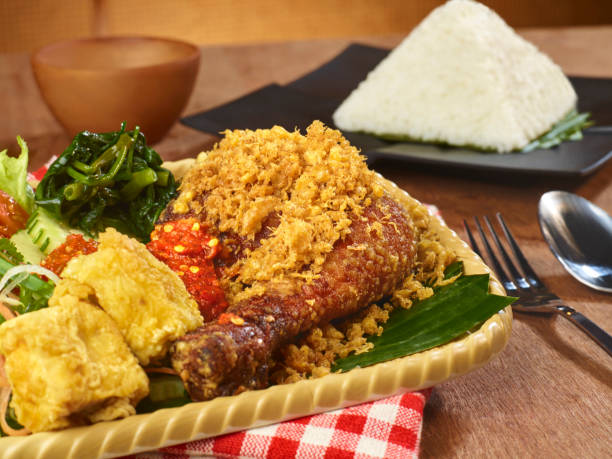Savoring the Exotic: A Journey through Indonesian Cuisine
Indonesian cuisine, a vibrant blend of indigenous traditions and foreign influences, is a culinary gem waiting to be discovered. From fiery sambals and aromatic rendangs to sweet and creamy desserts, the flavors of Indonesia offer a delightful culinary journey. Let's explore this fascinating cuisine together.

The Melting Pot of Flavors
Indonesia, an archipelago with over 17,000 islands, boasts an incredibly diverse culinary scene. Each region has its unique dishes influenced by local ingredients, climate, and cultural practices. The staple food, rice, is served in various forms, from the ubiquitous steamed rice to the festive yellow rice (nasi kuning). The country’s abundant spices, such as coriander, turmeric, and lemongrass, infuse dishes with rich, complex flavors.
The Quintessential Dishes
Rendang, a slow-cooked beef stew in coconut milk and spices, exemplifies Indonesian culinary artistry. The dish, originally from West Sumatra, has gained international acclaim for its deep, robust flavors. Nasi goreng, Indonesian fried rice, is another beloved dish, often enjoyed with a fried egg and prawn crackers. Satay, skewered and grilled meat served with peanut sauce, is a popular street food offering a taste of the country’s vibrant food culture.
Sweet Endings: Indonesian Desserts
Beyond savory dishes, Indonesian cuisine also features an array of delightful desserts. Klepon, sweet rice balls filled with palm sugar and coated in grated coconut, are a must-try. Another favorite is es cendol, a refreshing dessert drink made from pandan-flavored jelly, coconut milk, and palm sugar syrup.
The Art of Sambal
No Indonesian meal is complete without sambal, a spicy condiment made from chilies, shallots, garlic, and other ingredients. There are countless variations of sambal across the country, each delivering its unique kick. Exploring the world of sambal opens up a whole new level of appreciation for Indonesian cuisine.
Indonesian Beverages: More Than Just Coffee
Indonesia is renowned for its coffee, but its beverage repertoire extends beyond that. Jamu, a traditional herbal drink, is widely consumed for its health benefits. Another popular beverage is teh botol, sweetened jasmine tea often enjoyed chilled.
- Fact: Indonesia is the fourth largest producer of coffee in the world.
- Tip: When trying rendang, pair it with steamed rice to balance the richness of the dish.
- Fact: Sambal is often made fresh daily in Indonesian households.
- Tip: If you’re a dessert lover, don’t miss out on trying martabak manis, a thick, sweet pancake filled with various toppings.
In conclusion, Indonesian cuisine, with its diverse flavors and dishes, offers an enriching culinary adventure. Whether you’re sampling a fiery sambal or sipping a soothing jamu, each experience adds a new layer to your understanding of this fascinating cuisine. So embark on this gourmet journey and savor the exotic flavors of Indonesia.




